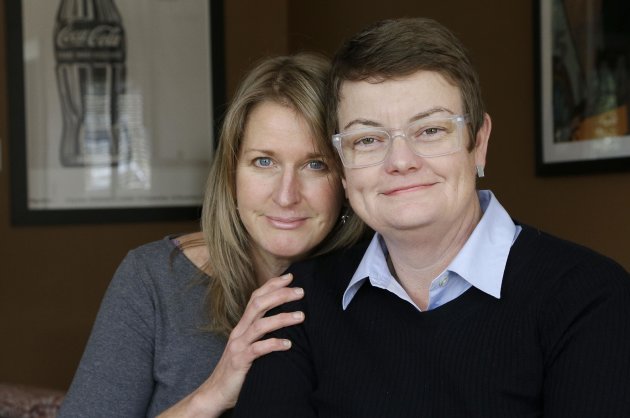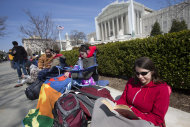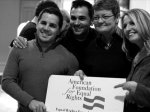|
Posted: 29 Mar 2013 05:25 AM PDT
When something is hurting us, or we find ourselves feeling stifled or deadened, we experience something inside of us that cries out, “There is more to life than this!” We find ourselves considering the need for change, even if we also are anxious about it.
It is easy to confuse “unfulfilling relationship” and “stupid, inadequate partner” sometimes. Pinning blame for your unhappiness on your boyfriend or partner seems to let you off the hook. If you find yourself playing the same record over and over again, finding the same shortcomings in partner after partner, it’s time to take a look at the common denominator in all those relationships: You. (Hint: if you ever find yourself saying something like, “All gay men [insert your gripe about men here]....,” it is definitely you!)
So the first step in creating something new is to take responsibility for your portion of creating the situation that needs changing. This is different from self-blaming. Understand that we generally do the best we can in life. As we grow and develop more life skills, we can learn to do even better. For instance, the first priority for many of us as gay men was to keep ourselves emotionally safe and protected. If you think back to your first heartbreak, you may even remember vowing never to feel that hurt again. The problem is you can’t have true intimacy in life if your first priority remains to defend yourself at all costs. You need to learn when it is safe to begin lowering your guard and opening your heart.
If your typical pattern that you are the romantic who can never seem to find true love and who has sometimes been manipulative in relationships (what I called the Pursuer in a previous column), consider stopping your efforts to control the outcome and learn to let go. If you find feelings of fear coming up for you, you are probably doing this right. Not returning to old patterns will be a challenge, but you are on the right track.
.
Similarly, if you have always been a Distancer and kept a good bit of detachment from those who have sought to get closer to you, your task is to open your heart and to learn to express your desire for your partner. This opens you up to the possibility of rejection. That’s frightening for those who have learned to be more comfortable doing the rejection! Allow yourself to feel vulnerable. Again, the presence of uncomfortable feelings likely means you are doing this right.
In both cases, the basic fear is that we are not lovable. It is understandable that many of us will do anything possible to avoid facing that fear. For many of us, this fear is too much to overcome on our own. When that’s the case, individual or relationship counseling can be helpful support and guidance in not staying stuck.
When we learn to overcome our fears and to allow ourselves to be who we truly are, relationships offer us great potential for healing and growing, learning new skills and finding that we love and respect ourselves.
John R. Ballew, M.S. an author and contributor to GAYTWOGETHER, is a licensed professional counselor in private practice in Atlanta. He specializes in issues related to coming out, sexuality, relationships and spirituality. If you have any questi
ons or comments you can submit them directly to GAYTWOGETHER or John R. Ballew, M.S. -www.bodymindsoul.org.
~~~~thanks Michael@gaytwogether.com
|
Audio for this story from All Things Considered will be available at approximately 7:00 p.m. ET.








1,232 comments